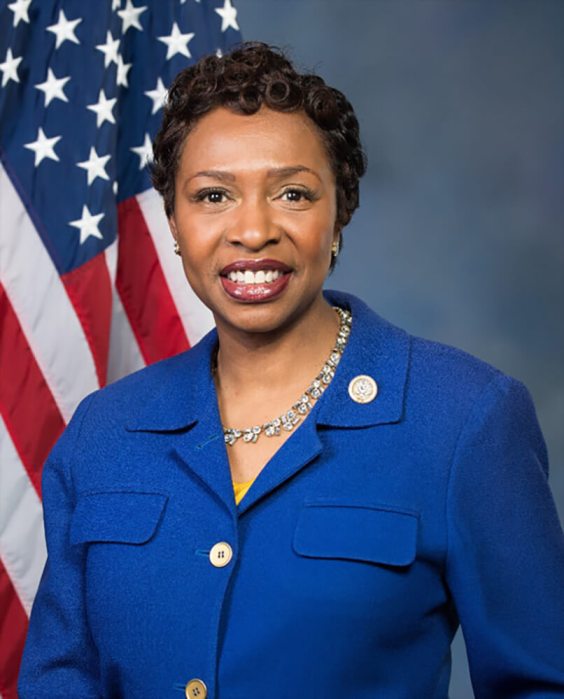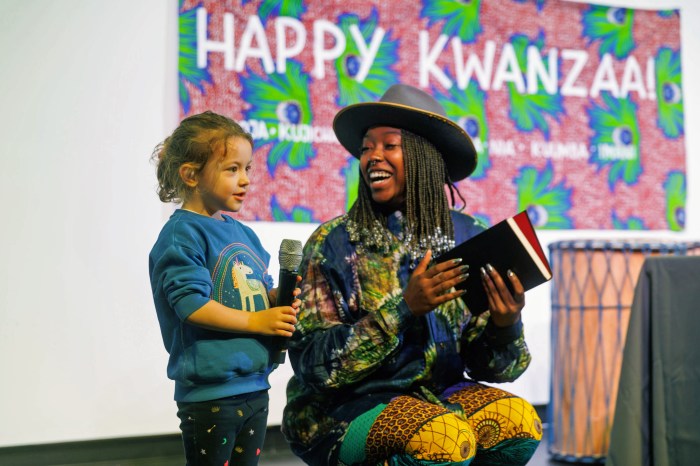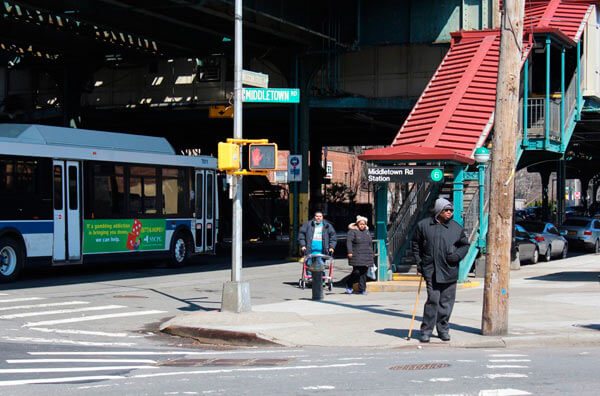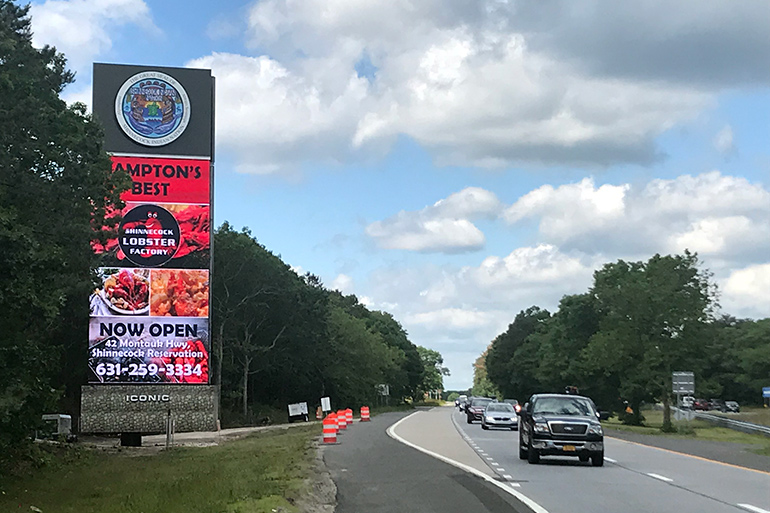The 134-year-old Fenimore Street United Methodist Church (FSUMC) on Sunday joined Houses of Worship and others throughout the nation in paying a “special” tribute to slain civil rights leader, the Rev. Dr. Martin Luther King, Jr., whose birthday was celebrated on Monday.
Rev. King’s birthday, a public holiday, was celebrated this year on his actual birthday, Jan. 15.
FSUMC devoted its entire near two-hour-long Worship Service on Sunday to Dr. King’s life and legacy, paying tributes in, among other things, songs, hymns and prayers.
“Welcome on this Special Day, the Rev. Dr. Martin Luther King, Jr.’s Day,” said Liturgist Marlene Ferguson, the Trinidadian-born chairperson of the church’s Family Life Committee.
“Father, we thank you to celebrated the birth of a man, who had given so much,” Ferguson, also a retired registered nurse, later prayed. “Father, we remember the assassination of this great man.”
Dr, King, clearly, the 20th Century’s most compelling and effective civil rights leader, was born on Jan. 15, 1929, in Atlanta, GA.
He was assassinated in Memphis, Tenn. on April 4,1968 while standing on the balcony of the Lorraine Motel.
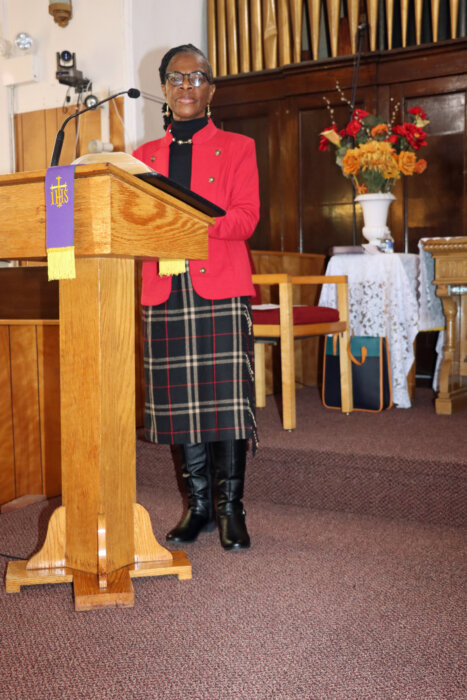
Ferguson noted that Martin Luther King Day “celebrates the life and work of Dr. King, who was a Baptist Minister and a prominent leader in the American civil rights movements.
“On this day, people are encouraged to use the day to reflect on the principles of racial equality and nonviolent social change,” she said, stating that, according to the King Center in Atlanta, the theme for this year’s celebration is “Shifting the cultural climate through the study and the practice of Kingian non-violence.”
“Kingian non-violence is about using nonviolent solutions to address injustice and violence globally,” Fergusion added. “It is a practice derived from King’s philosophy and methodology of individuals and communities learning to work on areas of conflict without resorting to violence.”
She said she was in high school in Trinidad and Tobago when news broke that King was assassinated, and that all students were sent home.
“That day, the downpour of rain, thunder, lightning – and looked as though the world was coming to an end,” Ferguson recalled. “When I arrived at my home in the village of Enterprise, I saw my mother gathered together with other villagers. Our home was a local gathering spot for the villagers. They were heartbroken, crying, praying for strength.
“Honestly, I don’t know how much they knew about MLK (Martin Luther King),” she added. “The little I myself heard of MLK was in a calypso, ‘We Want Martin Luther King for President.’”
That song was written and sung by the Mighty Sparrow, the undisputed Calypso King of the World.
As congregants reflected on the life and legacy of Dr. King, Ferguson also asked them to remember civil rights trailblazers, such as the late Rosa Parks and Congressman John Lewis.
She noted that “they struggled through injustice, discrimination”, adding: “That is the reason we are able to be here today.
“John Lewis said, ‘If you are going to get into trouble, then let it be good trouble,’” Ferguson continued. “Just like MLK and so many others, they got in good trouble to pave the way for us from generation to generation.”
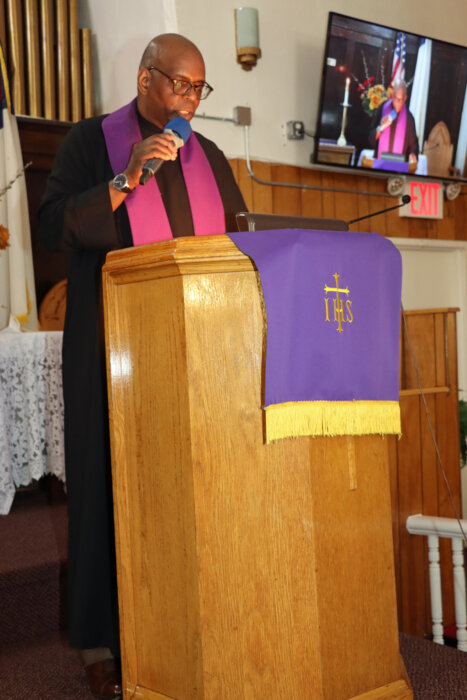
Congregants on each side of the sanctuary read alternate paragraphs of the “Special MLK Prayer”. It says, in part: “We remember the conviction of Martin Luther King, Jr. that ‘freedom is never voluntarily given by the oppressor; it must be demanded by the oppressed’. Therefore, let us pray for courage and determination by those who are oppressed. We remember Martin’s warning that ‘a negative peach, which is the absence of tension,’ is less than ‘a positive peace, which is the presence of justice’. Therefore, let us pray that those who work for peace in our world may cry out first for justice.”
The congregation also joined the Chancel Choir in singing “We Shall Overcome”, the anthem of the Civil Rights Movement in the 1950s and ‘60s.
African American spirituals, such as “Kum Ba Yah, My Lord” and “Wade in the Water,” were among songs and hymns rendered by both the Chancel Choir and the congregation.
“When invite leads to incite, it will lead to transformation of the minds,” preached the church’s African American Pastor the Rev. Roger Jackson in his sermon, basing it on John 1:43-51.
“We are called Christians, but we ought to love as disciples of Jesus Christ,” he added. “The good news is [that] Jesus continues to call us out of darkness. The good news is that we don’t have to be mistakenly identified.”



